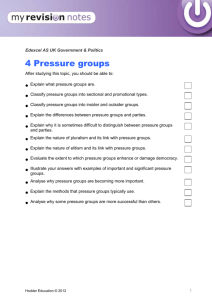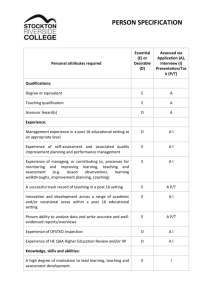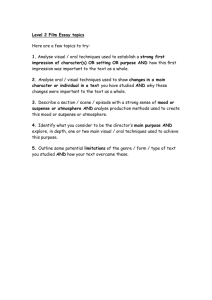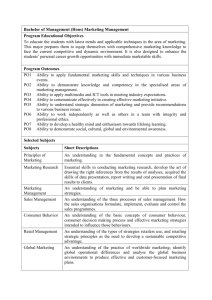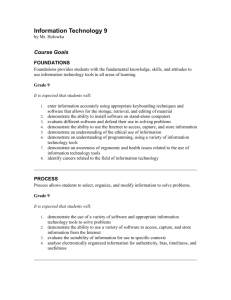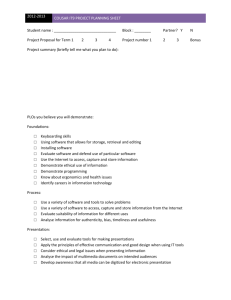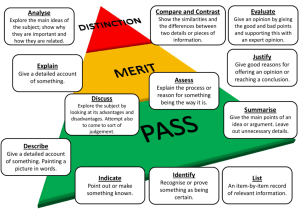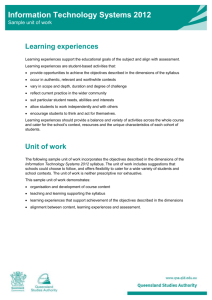DipMgt Business Strategy
advertisement
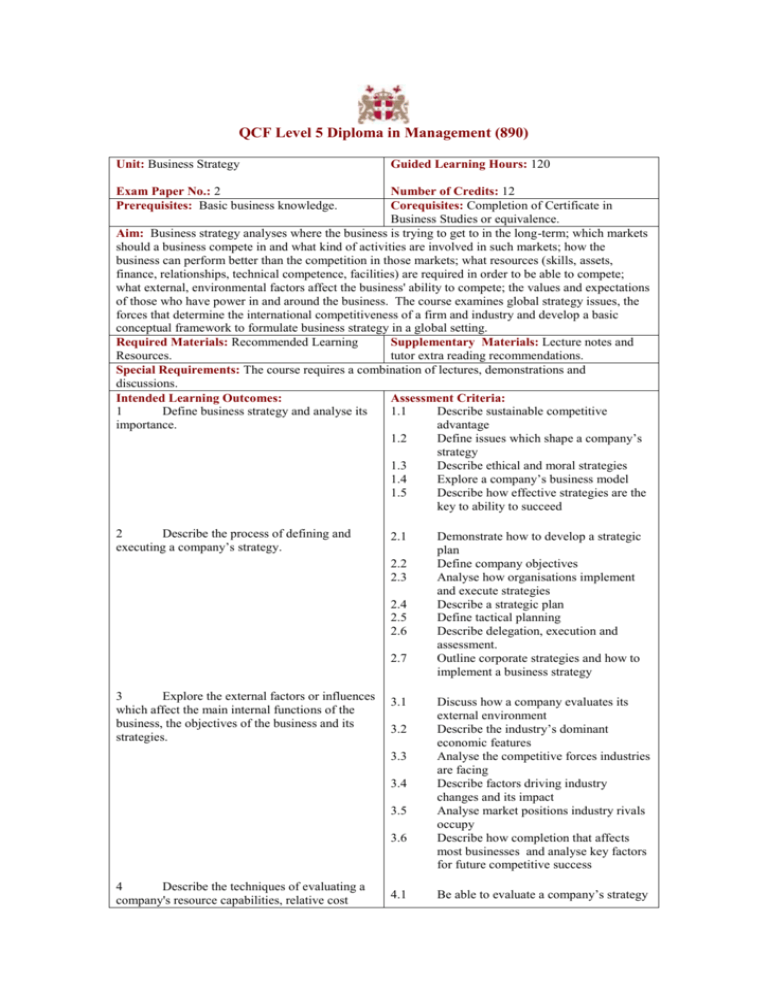
QCF Level 5 Diploma in Management (890) Unit: Business Strategy Guided Learning Hours: 120 Exam Paper No.: 2 Prerequisites: Basic business knowledge. Number of Credits: 12 Corequisites: Completion of Certificate in Business Studies or equivalence. Aim: Business strategy analyses where the business is trying to get to in the long-term; which markets should a business compete in and what kind of activities are involved in such markets; how the business can perform better than the competition in those markets; what resources (skills, assets, finance, relationships, technical competence, facilities) are required in order to be able to compete; what external, environmental factors affect the business' ability to compete; the values and expectations of those who have power in and around the business. The course examines global strategy issues, the forces that determine the international competitiveness of a firm and industry and develop a basic conceptual framework to formulate business strategy in a global setting. Required Materials: Recommended Learning Supplementary Materials: Lecture notes and Resources. tutor extra reading recommendations. Special Requirements: The course requires a combination of lectures, demonstrations and discussions. Intended Learning Outcomes: Assessment Criteria: 1 Define business strategy and analyse its 1.1 Describe sustainable competitive importance. advantage 1.2 Define issues which shape a company’s strategy 1.3 Describe ethical and moral strategies 1.4 Explore a company’s business model 1.5 Describe how effective strategies are the key to ability to succeed 2 Describe the process of defining and executing a company’s strategy. 2.1 2.2 2.3 2.4 2.5 2.6 2.7 3 Explore the external factors or influences which affect the main internal functions of the business, the objectives of the business and its strategies. 3.1 3.2 3.3 3.4 3.5 3.6 4 Describe the techniques of evaluating a company's resource capabilities, relative cost 4.1 Demonstrate how to develop a strategic plan Define company objectives Analyse how organisations implement and execute strategies Describe a strategic plan Define tactical planning Describe delegation, execution and assessment. Outline corporate strategies and how to implement a business strategy Discuss how a company evaluates its external environment Describe the industry’s dominant economic features Analyse the competitive forces industries are facing Describe factors driving industry changes and its impact Analyse market positions industry rivals occupy Describe how completion that affects most businesses and analyse key factors for future competitive success Be able to evaluate a company’s strategy position, and competitive strength. 4.2 4.3 in quantitative and qualitative terms Be able to perform a SWOT analysis Define competence 5 Analyse the different competitive strategies companies can employ 5.1 5.2 5.3 5.4 5.5 Describe low-cost provider strategy Describe broad differentiation strategies Define best-cost strategies Define a focused strategy Describe focused differentiation strategy 6 Describe the approach for developing knowledge management strategy and outline the situations can benefit from knowledge management approaches. 6.1 Analyse different methods of supplementing an organisation’s strategy Describe strategic alliances Define outsourcing Describe collaborative partnerships Define mergers and acquisitions Explore how companies can use the Internet to position themselves in the market place 7 Explore the modern techniques of strategy and bargaining, key strategic issues in international markets and institutions and international issues relating to the global economy. 7.1 6.2 6.3 6.4 6.5 6.6 7.2 7.3 7.4 7.5 8 Demonstrate how to tailor make strategies to fit specific industries and company situations. 8.1 8.2 8.3 9 Define diversity. Describe advantages and disadvantages of diversifying. 9.1 9.2 9.3 9.4 9.5 9.6 9.7 10 Describe how firms apply the general ethical principles and standards to their actions and decisions. 10.1 10.2 Analyse the strategic issues relating to international markets Describe multi-country competition Define global competition Describe risks associated with foreign markets Describe how firms gain competitive advantage in the global market Evaluate the type of industry environment a company operates Be able to analyse the firm’s position in the industry Explore a firm’s best strategy alternatives including how to confront issues and problems Describe economies of scale Define company restructuring Describe acquisition Describe internal startup Describe joint venture Describe a company’s diversification strategy process Outline the purpose of diversification. Define ethical standards Describe a firm’s ethical and moral principles 10.3 Describe unethical behaviour 10.4 Explore how firms manage ethical conduct 10.5 Define corporate social responsibility 10.6 Describe why a firm’s strategy should be ethical Methods of Evaluation: A 2½-hour written examination paper with five essay questions, each carrying 20 marks. Candidates are required to answer all questions. Candidates also undertake project/coursework in Business Strategy with a weighting of 100%. Recommended Learning Resources: Business Strategy Text Books Business Strategy: An Introduction by David Campbell, George Stonehouse and Bill Houston. ISBN-10: 0750655690 Business Strategy ("The Economist") by Jeremy Kourdi. ISBN-10: 1861974590 Corporate Strategy by Richard Lynch. ISBN-10: 0273701789 Study Manuals BCE produced study packs CD ROM Power-point slides Software None
